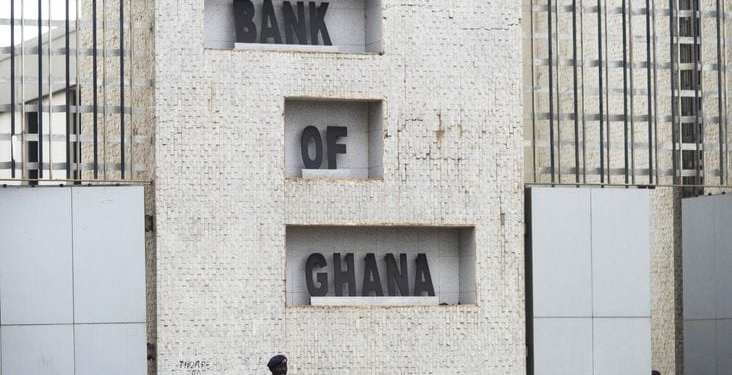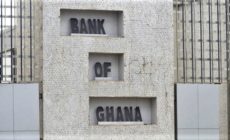Banks have not passed on Covid-19 costs to customers – BoG boss
- Posted on
- Comment

Governor of the Bank of Ghana (BoG) Dr Ernest Addison has said Ghana’s Financial Soundness indicators are strong and Banking Sector Stability Index monitored by the Bank remains in high positive territories, indicating the resilience of the sector.
According to him, the recent BoG survey on the impact of the pandemic on banks showed that while the coronavirus pandemic has increased the industry’s cost of operations, banks have not passed on the associated costs to consumers through higher interest margins.
“This is laudable and minimised the potential disruptions in credit flows. There is no doubt that these responses have contributed significantly to the much faster pace of economic recovery than anticipated,” he said at 2020 Annual Dinner of the Chartered Institute of Bankers (Ghana) over the weekend.
He further explained that the Bank of Ghana, unlike other peer central banks, was able to utilize its policy space — gains from over three years of strong monetary policy reforms — by triggering the emergency clause of the BoG Act to allow the Bank purchase Government of Ghana COVID-19 relief bond (GH¢10 billion), in line with provisions of the BOG Act 2002 (Act 612), as amended Act 918.
“It should be known that over the last three years, the Bank had observed a strict zero financing of the budget in line with a Memorandum of Understanding between it and the Ministry of Finance as part of the IMF programme.
“This policy therefore represented a major policy shift reflecting the posture of doing “whatever it takes” to preserve lives and livelihoods and this helped in closing the widened financing gap of the budget arising from increased COVID-related spending as revenues dwindled.
“The banking industry, deserves commendation for the positive response to the Bank’s monetary policy actions and regulatory relief measures. Following the announcement of the measures, Banks have provided various reliefs to customers through reduction in lending rates, granted moratoria on loan repayments, restructured existing facilities, and advanced new loans to customers.
“Broadly, these actions have helped moderate the economic impact of COVID-19 on customersthe Bank of Ghana, unlike other peer central banks, was able to utilize its policy space—gains from over three years of strong monetary policy reforms—by triggering the emergency clause of the BoG Act to allow the Bank purchase Government of Ghana COVID-19 relief bond (GH¢10 billion), in line with provisions of the BOG Act 2002 (Act 612), as amended Act 918. It should be known that over the last three years, the Bank had observed a strict zero financing of the budget in line with a Memorandum of Understanding between it and the Ministry of Finance as part of the IMF programme.
“This policy therefore represented a major policy shift reflecting the posture of doing “whatever it takes” to preserve lives and livelihoods and this helped in closing the widened financing gap of the budget arising from increased COVID-related spending as revenues dwindled. The banking industry deserves commendation for the positive response to the Bank’s monetary policy actions and regulatory relief measures.
“Following the announcement of the measures, Banks have provided various reliefs to customers through reduction in lending rates, granted moratoria on loan repayments, restructured existing 6 facilities, and advanced new loans to customers. Broadly, these actions have helped moderate the economic impact of COVID-19 on customers and minimised the potential disruptions in credit flows. There is no doubt that these responses have contributed significantly to the much faster pace of economic recovery than anticipated. To safeguard financial stability, in the midst of the pandemic, the Bank, in consultation with the industry, provided guidance to ensure that reliefs such as repayment moratoria, and extended and restructured loans and advances to customers were transparent and standardised while recognising the prudential treatment that the BoG will apply to such reliefs in its assessment of credit and liquidity risks and capital ratios.
“Broadly, the Bank’s COVID-19 policy interventions has positively influenced the banking sector and the economy. At the last MPC meeting, we assessed the banking sector to be liquid, profitable, and well capitalised. The Financial Soundness Indicators are strong and Banking Sector Stability Index monitored by the Bank remains in high positive territories indicating the resilience of the sector.
“The recent BoG survey on the impact of the pandemic on Banks showed that while the Pandemic has increased the industry’s cost of operations, Banks have not passed on the associated costs to consumers through higher interest margins. This is laudable and minimised the potential disruptions in credit flows. There is no doubt that these responses have contributed significantly to the much faster pace of economic recovery than anticipated.
“To safeguard financial stability, in the midst of the pandemic, the Bank, in consultation with the industry, provided guidance to ensure that reliefs such as repayment moratoria, and extended and restructured loans and advances to customers were transparent and standardised while recognising the prudential treatment that the BoG will apply to such reliefs in its assessment of credit and liquidity risks and capital ratios. Broadly, the Bank’s COVID-19 policy interventions has positively influenced the banking sector and the economy.
“At the last MPC meeting, we assessed the banking sector to be liquid, profitable, and well capitalised. The Financial Soundness Indicators are strong and Banking Sector Stability Index monitored by the Bank remains in high positive territories indicating the resilience of the sector. The recent BoG survey on the impact of the pandemic on Banks showed that while the Pandemic has increased the industry’s cost of operations, Banks have not passed on the associated costs to consumers through higher interest margins. This is laudable.”
By Laud Nartey










 (Selorm) |
(Selorm) |  (Nana Kwesi)
(Nana Kwesi)